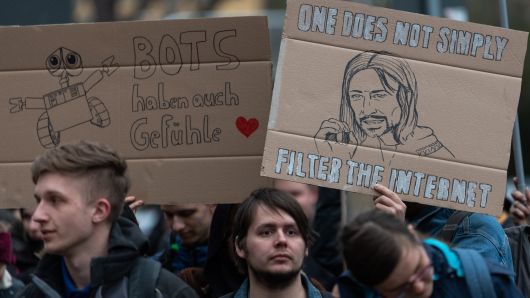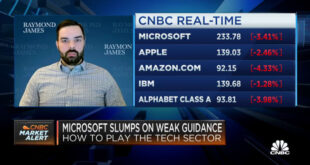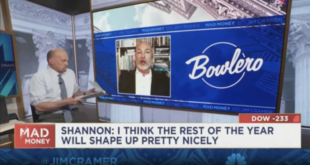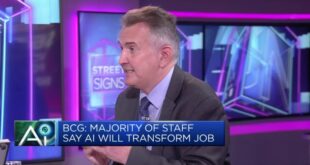
Robert Michael | picture alliance | Getty Images
The European Parliament has approved controversial copyright reforms without any changes, thus paving the way for an early implementation.
If you’re an internet user in Europe, chances are the way you use platforms like YouTube and Facebook could be about to shift drastically in the coming years.
The European Parliament recently passed sweeping changes to the EU’s almost two decades-old copyright rules, and critics are worried it could be a misfire that ultimately results in online censorship.
The aptly-named directive on “Copyright in the Digital Single Market” is all part of the bloc’s efforts to update its laws to reflect the challenges posed by the age of information.
First introduced by the European Commission in 2016, the new copyright law contains two particular sections that have attracted heavy scrutiny from activists and internet giants alike: Articles 11 and 13 (or 15 and 17 as they’re now numbered after a recent update).
The former is aimed at giving news organizations more protections to ensure they’re paid fairly for the dissemination of their stories online. Services like Google News will be under particular pressure, as the rules will mean tech firms need to agree to licenses with publishers to share their articles.
In fact, Google has gone as far as to suggest that it may even be forced to pull its news aggregation platform from Europe as a result of the new legislation.
But the biggest source of worry for the people and companies protesting the new measures by far is Article 13. Currently, the onus is on rightsholders to flag copyright violations with tech firms, who can then take action to pull content if they find it’s in breach of copyright.
With the new rules, liability now lies with tech giants to ensure their platforms aren’t open to copyright breaches. Detractors have said this would lead to controversial pre-filter systems, where everything from memes to GIFs are blocked from online platforms.
For its part, the European Parliament has said this won’t be the case, and that memes, GIFs, hyperlinks and snippets of articles will still be able to be shared freely. But that hasn’t allayed the concerns of tech companies, freedom of speech campaigners and regular internet users themselves.
 EU News Digest Latest News & Updates
EU News Digest Latest News & Updates



